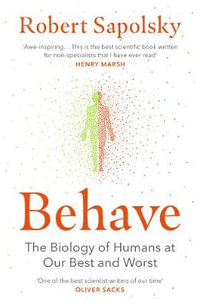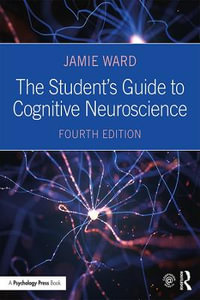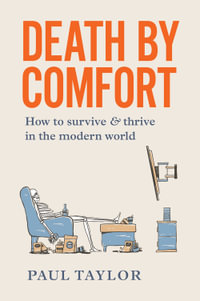
Dark and Magical Places - The Neuroscience of Navigation
The Neuroscience of Navigation
By: Christopher Kemp
13 June 2023
At a Glance
$39.30
When will this arrive by?
Inside our heads we carry around an infinite and endlessly unfolding map of the world. Navigation is one of the most ancient neural abilities we have-older than language. In Dark and Magical Places, Christopher Kemp embarks on a journey to discover the remarkable extent of what our minds can do.
Fueled by his own spatial shortcomings, Kemp describes the brain regions that orient us in space and the specialized neurons that do it. Place cells. Grid cells. He examines how the brain plans routes, recognizes landmarks, and makes sure we leave a room through a door instead of trying to leave through a painting. From the secrets of supernavigators like the indigenous hunters of the Bolivian rainforest to the confusing environments inhabited by people with place blindness, Kemp charts the myriad ways in which we find our way and explains the cutting-edge neuroscience behind them.
How did Neanderthals navigate? Why do even seasoned hikers stray from the trail? What spatial skills do we inherit from our parents? How can smartphones and our reliance on GPS devices impact our brains? In engaging, engrossing language, Kemp unravels the mysteries of navigating and links the brain's complex functions to the effects that diseases like Alzheimer's, types of amnesia, and traumatic brain injuries have on our perception of the world around us.
A book for anyone who has ever felt compelled to venture off the beaten path, Dark and Magical Places is a stirring reminder of the beauty in losing yourself to your surroundings. And the beauty in understanding how our brains can guide us home.
Industry Reviews
"Christopher Kemp's brilliant and beguiling new book reveals that behind the curtain of the seemingly quotidian act of traversing space lies an array of intricate neuroscientific magic tricks, temporal feats of strength, hiccups, and elusive mysteries. Like the brain itself, Kemp's wild writing quakes and sparks, uncovering the lyric lurking in the neuroscientific, the hilarious in the incantatory." -- Matthew Gavin Frank, author of Flight of the Diamond Smugglers
"A dazzling-at times dizzying-exploration of brains and places, how they trouble one another and how they give one another meaning." -- Robert Moor, author of On Trails
"A fascinating and sneakily amusing book. Kemp is an elegant and quick-witted writer who, feeling perpetually and hopelessly lost himself, is perfectly qualified to lead us through some of the most complicated and discombobulating corners of human cognition." -- John Mooallem, author of Wild Ones and This Is Chance!
"A modern look inside the brain, written as beautifully as a long-form poem. Don't miss this opportunity to let Kemp show you the how and why of where." -- David Eagleman, Stanford neuroscientist, author of Incognito and Livewired
"As both scientist and scribe, Kemp brings his gifts of curiosity and intelligence to bear on the topic of navigation and shows us that there is no shame in being lost. On the contrary, Kemp demonstrates that to be continuously and authentically in search of our place on Earth is a wondrous thing." -- M. R. O'Connor, author of Wayfinding
"Finding our way is a basic necessity of life, yet it is mostly taken for granted. Kemp effectively explains just how complex and astonishing that task really is." -- Tony Miksanek - Booklist
"An intense lesson in the neuroscience of getting around." -- Kirkus
"This tome is no textbook. It is designed to be accessible to a large audience: Nonscientists will benefit from Kemp's capacity to render vivid representations of the complexity of living organisms, but scientists, too, are likely to gain something from reading this book." -- Marcia Becu and Christian F. Doeller - Science
"Kemp debunks numerous myths, including the idea that females possess poorer navigational skills than males, and reflects on the difference between the navigational abilities of modern humans versus those of Neanderthals. What separates the two, he suggests, is the use of the subjunctive form, which led to humans being better at navigating. Kemp peppers in accounts of his own poor navigational abilities and colorful stories of people getting lost, which keep things moving along. The result is both enjoyable and accessible." -- Publishers Weekly
ISBN: 9781324064381
ISBN-10: 1324064382
Published: 13th June 2023
Format: Not Supplied By Publisher
Language: English
Number of Pages: 256
Audience: General Adult
Publisher: WW Norton & Co
Country of Publication: GB
Dimensions (cm): 13.8 x 21.0 x 1.9
Weight (kg): 0.16
Shipping
| Standard Shipping | Express Shipping | |
|---|---|---|
| Metro postcodes: | $9.99 | $14.95 |
| Regional postcodes: | $9.99 | $14.95 |
| Rural postcodes: | $9.99 | $14.95 |
How to return your order
At Booktopia, we offer hassle-free returns in accordance with our returns policy. If you wish to return an item, please get in touch with Booktopia Customer Care.
Additional postage charges may be applicable.
Defective items
If there is a problem with any of the items received for your order then the Booktopia Customer Care team is ready to assist you.
For more info please visit our Help Centre.
You Can Find This Book In
This product is categorised by
- Non-FictionScienceBiology, Life SciencesLife Sciences in GeneralNeurosciences
- Non-FictionMedicineClinical & Internal MedicineNeurology & Clinical Neurophysiology
- Non-FictionEngineering & TechnologyTransport Technology & TradesShipbuilding TechnologyNavigation & Seamanship
- Non-FictionScienceBiology, Life SciencesMolecular Biology
- Non-FictionTransportationShips & Boats in General























